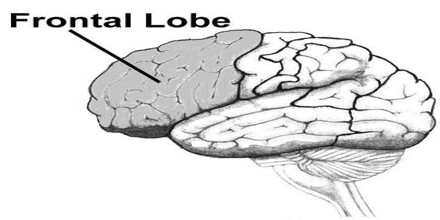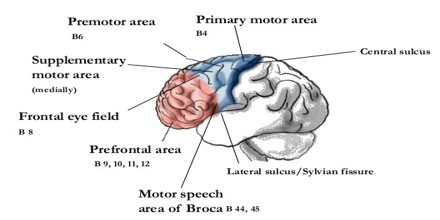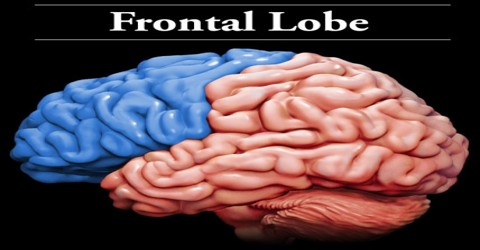Frontal Lobe
Definition
Frontal lobe is the largest and forwardmost lobe of each cerebral hemisphere, responsible for the control of skilled motor activity, including speech. Mood and the ability to think are also controlled by the frontal lobe. It is located at the front of each cerebral hemisphere and positioned in front of the parietal lobe and above and in front of the temporal lobe. It is separated from the parietal lobe by a space between tissues called the central sulcus, and from the temporal lobe by a deep fold called the lateral sulcus also called the Sylvian fissure.

The frontal lobes are important for controlling thoughts, reasoning, and behaviors. It contains most of the dopamine-sensitive neurons in the cerebral cortex. The dopamine system is associated with reward, attention, short-term memory tasks, planning, and motivation. Dopamine tends to limit and select sensory information arriving from the thalamus to the forebrain.
In the early 20th century, a medical treatment for mental illness, first developed by Portuguese neurologist Egas Moniz, involved damaging the pathways connecting the frontal lobe to the limbic system. Frontal lobotomy (sometimes called frontal leucotomy) successfully reduced distress but at the cost of often blunting the subject’s emotions, volition and personality.

Structure and Functions of Frontal Lobe
Most neuroscientists divide the frontal lobe into four distinct regions, each containing a number of vital structures. Those include:
- Medial Frontal Lobe: This region contains the cingulate gyrus, which is a part of the limbic system. It also contains the superior frontal gyrus, which research suggests plays a role in self-awareness.
- Lateral Frontal Lobe: This region contains the superior frontal gyrus, which aids in self-awareness, as well as the middle frontal and inferior frontal gyrus. The inferior frontal gyrus plays a role in language processing.
- Polar Region: This region is home to the frontomarginal gyrus, as well as the transverse frontopolar gyri.
The function of the frontal lobe involves the ability to project future consequences resulting from current actions, the choice between good and bad actions, the override and suppression of socially unacceptable responses, and the determination of similarities and differences between things or events. It also plays an important part in integrating longer non-task based memories stored across the brain. These are often memories associated with emotions derived from input from the brain’s limbic system. The frontal lobe modifies those emotions to generally fit socially acceptable norms.
















